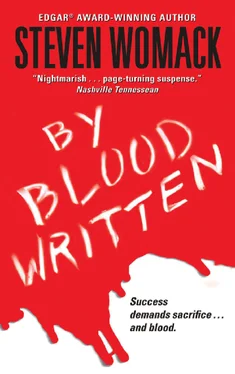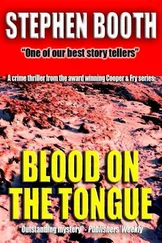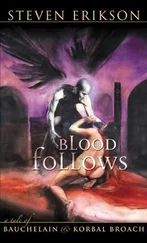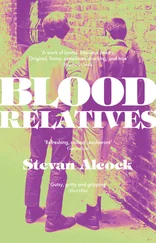Steven Womack - By Blood Written
Здесь есть возможность читать онлайн «Steven Womack - By Blood Written» весь текст электронной книги совершенно бесплатно (целиком полную версию без сокращений). В некоторых случаях можно слушать аудио, скачать через торрент в формате fb2 и присутствует краткое содержание. Жанр: Триллер, на английском языке. Описание произведения, (предисловие) а так же отзывы посетителей доступны на портале библиотеки ЛибКат.
- Название:By Blood Written
- Автор:
- Жанр:
- Год:неизвестен
- ISBN:нет данных
- Рейтинг книги:3 / 5. Голосов: 1
-
Избранное:Добавить в избранное
- Отзывы:
-
Ваша оценка:
- 60
- 1
- 2
- 3
- 4
- 5
By Blood Written: краткое содержание, описание и аннотация
Предлагаем к чтению аннотацию, описание, краткое содержание или предисловие (зависит от того, что написал сам автор книги «By Blood Written»). Если вы не нашли необходимую информацию о книге — напишите в комментариях, мы постараемся отыскать её.
By Blood Written — читать онлайн бесплатно полную книгу (весь текст) целиком
Ниже представлен текст книги, разбитый по страницам. Система сохранения места последней прочитанной страницы, позволяет с удобством читать онлайн бесплатно книгу «By Blood Written», без необходимости каждый раз заново искать на чём Вы остановились. Поставьте закладку, и сможете в любой момент перейти на страницу, на которой закончили чтение.
Интервал:
Закладка:
Ressler discovered that serial killers often, in fact commonly, shared three traits from childhood. They enjoyed torturing animals, enjoyed setting fires, and were chronic bed wetters.
If Walonsky was telling the truth, Hank mused, Michael Schiftmann was batting .666.
But as he read on, he realized that there were even other indicators. Michael Schiftmann’s academic records were revealing. In ninth grade, he tested out on the Wechsler Adult Intelligence Survey as having an IQ of 156-genius level and then some. A sympathetic guidance counselor apparently became interested in the young boy and helped him get a scholarship to the Benton Academy, an exclusive private school on the lakeshore near Oberlin. There, Hank read, Schiftmann apparently learned the art of getting in trouble without getting caught with his hand too far in the cookie jar. His file from the Benton Academy indicated that he was constantly in and out of minor scrapes. He got caught smoking a few times, but always cigarettes, never pot. He got caught drinking beer in his senior year, but not hard liquor.
And in every instance, it seemed, he had an explanation. It was always somebody else’s booze, somebody else brought the cigarettes, it was somebody else’s idea to take that sneak Saturday night.
Schiftmann, Hank noted, did graduate from the academy.
But his grades were chronically low-skating along in the low C, high D range-and he actually attended graduation under disciplinary probation. With his brains, he could’ve aced every course in school without cracking a book. But he was, one teacher noted, “a chronic underachiever.”
There were also notes in his Benton file from guidance counselors and teachers who struggled to get a handle on this kid. He had problems with authority, with women, with appropriate social behavior. Of course, Hank realized, he’d just read descriptions of the majority of adolescent males in the country. But this was different. The tone of the guidance counselor reports was serious, foreboding, as if the counselors could see there was something at work here besides adolescent rebellion.
After private school, Schiftmann actually managed to put in two semesters at the University of Virginia, paying with a combination of scholarships and student loans. But his grades here were equally dismal and there were numerous disciplinary problems as well, including one incident when Michael got in a fight at a drunken frat party and actually broke a guy’s arm. He left college at the end of his freshman year.
After that, Michael Schiftmann’s life became a blur. He apparently worked menial jobs and switched them often.
His social security records revealed he rarely made over ten grand a year for a decade-long stretch. He was living in a one-bedroom apartment in a run-down complex in a down-scale section of Cleveland, paying less than four hundred a month in rent and probably barely scraping that up.
Somewhere along the way, and God only knew how, Michael Schiftmann switched from being an inveterate reader to an aspiring writer. The first publication anyone could find was a science-fiction short story in an obscure fanzine published out of Cleveland. Then, a few years later, he published his first novel, a mystery that was brought out in paperback by a small house and was nominated for a couple of awards, but went nowhere. Some copies of reviews were included in the file. Hank read them and was surprised to find them overwhelmingly glowing. Words and phrases like “liter-ate,” “compelling,” “involving and complex” were used to describe his work.
By then, Michael Schiftmann had gotten a job as a proofreader with a small publisher of religious and archaeological texts. And according to the report, he kept the job from his mid-twenties until he was thirty-four.
Hank scanned the field office report, which listed his next four books as well. Again, good reviews, a couple of nominations, one small award, the name of which Hank didn’t recognize …
Yet, Hank thought, he couldn’t afford to give up his day job. Five books, reviews, awards, and can’t afford to quit the day job.
Hank was glad he had no impulse whatsoever to be a writer.
There was almost a four-year lapse in Schiftmann’s publishing history. During that time, he held his job, but published nothing. Was this a long dry spell, Hank wondered, or was there something else going on?
Then, five years ago, he’d published The First Letter . Six months later, The Second Letter was released. Two months after that, Schiftmann quit his day job, this time for good.
After four years of wandering in the desert, Michael Schiftmann had suddenly become a publishing dynamo.
And, he thought, a cash cow for everyone involved.
Hank looked up from his desk and stared out the window.
Outside, it was dark. He looked at his watch and was surprised to find it was almost seven. He’d been at this twelve hours almost nonstop. Somehow, the time seemed to go by quickly.
To the untrained eye, Hank thought, there was nothing in Michael Schiftmann’s past that would jump out and shout
“murderer.” To the outside onlooker, Schiftmann looked more like a troubled kid from a troubled background who triumphed over every obstacle to succeed beyond his most impossible-to-imagine dreams. He wasn’t an ice-cold sociopath, a stone killer; he was the American dream personified.
He was a literary Horatio Alger.
But, little by little, the circumstantial evidence was piling up. Hank Powell looked at his scribbled notes. In every city where the Alphabet Man took a victim, Michael Schiftmann was close by at the time, usually at book signings on publicity tours, but sometimes at book fairs, writers’ conferences, and the like.
And as Maria Chavez had discovered, the order and basic descriptions of the murders in the first five installments of Schiftmann’s best-selling series were exactly the same as the real murders, even though some of the details and places had changed.
And finally, Hank realized, everything about Michael Schiftmann-the freedom and lack of structure in his life, his living on the edge of society for so many years, his intelligence and his resources, his history in work and school, his egomaniacal drive and lust for fame, recognition, and wealth-fit the psychological profile of a highly intelligent, organized serial killer.
In other words, the Alphabet Man …
But was this enough? The key, of course, was Nashville.
That’s where they had the best forensic evidence. That’s where they had the blood and tissue samples, the samples that could be DNA-typed to Schiftmann’s blood. If there was a match, he’d go down, hard.
Which meant that without a grand jury indictment, the chance of getting a search warrant to collect the samples was thin. It was possible, of course. Hank realized they were lucky in getting the best forensic evidence in a Southern, conservative town, rather than, say, Vancouver or New York City, where people were commonly less sympathetic to police. Schiftmann, though, had the resources to put up a good fight-primarily the money, but also the fame, and as the American public had learned over the past years, fame is a powerful weapon to a good defense attorney.
So many variables, so many things to consider. Powell and Max Bransford had talked several times in the past few days alone, and the one thing they agreed on was that there was no way they were going to the DA and the grand jury until they had a case that was solid enough to withstand the inevitable hurricane that would follow.
Hank walked over to the window and stared out into the darkening woods. To his left, in the distance, the faint sulfurous glow of the lights over the west parking lot intruded on the darkness. He realized that at this moment, he probably knew more about Michael Schiftmann than anyone alive except Schiftmann himself. But that was the problem: He knew more about him rather than really knowing him.
Читать дальшеИнтервал:
Закладка:
Похожие книги на «By Blood Written»
Представляем Вашему вниманию похожие книги на «By Blood Written» списком для выбора. Мы отобрали схожую по названию и смыслу литературу в надежде предоставить читателям больше вариантов отыскать новые, интересные, ещё непрочитанные произведения.
Обсуждение, отзывы о книге «By Blood Written» и просто собственные мнения читателей. Оставьте ваши комментарии, напишите, что Вы думаете о произведении, его смысле или главных героях. Укажите что конкретно понравилось, а что нет, и почему Вы так считаете.












